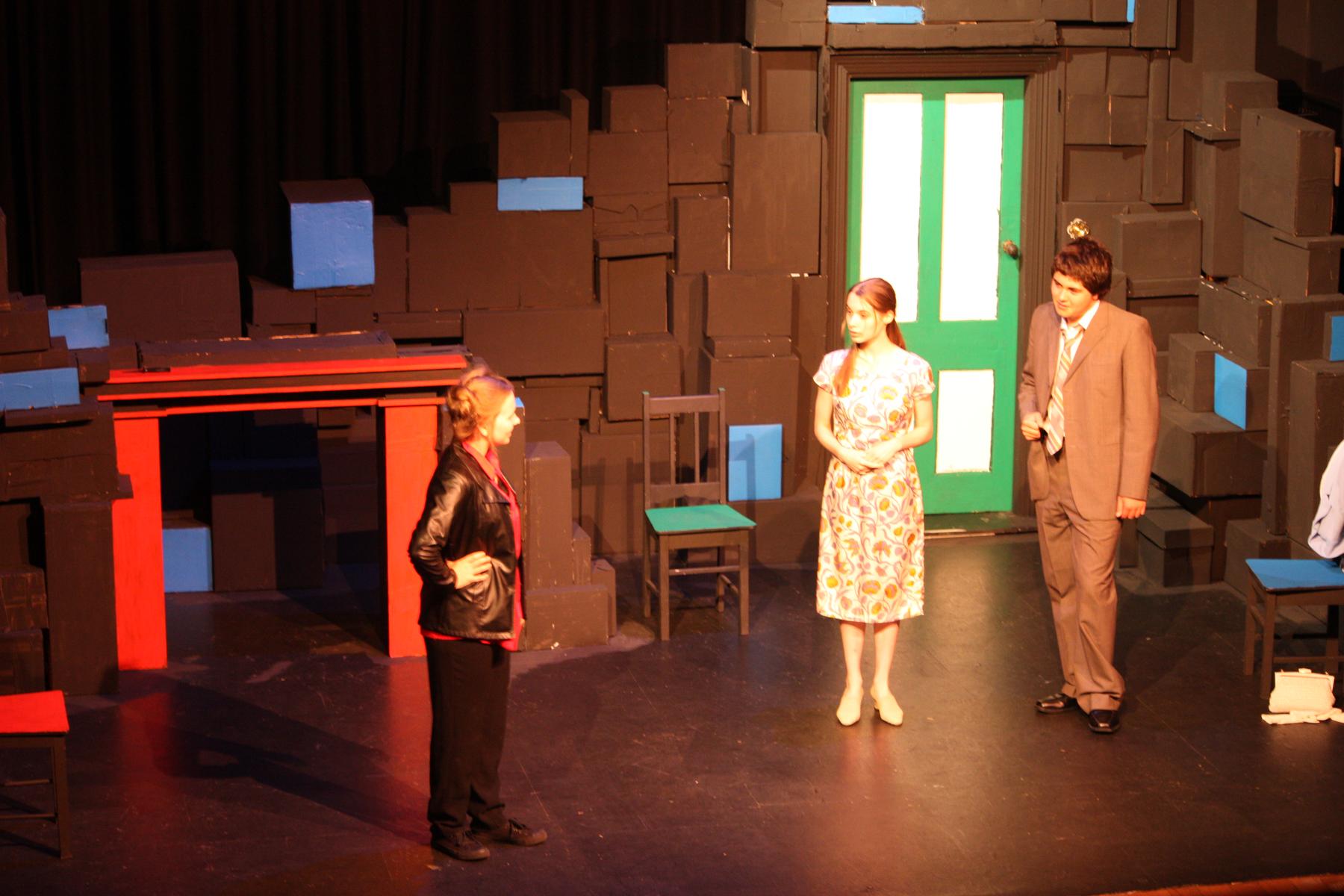IBDP Theatre
Image: 'The Humpty Files', 2021
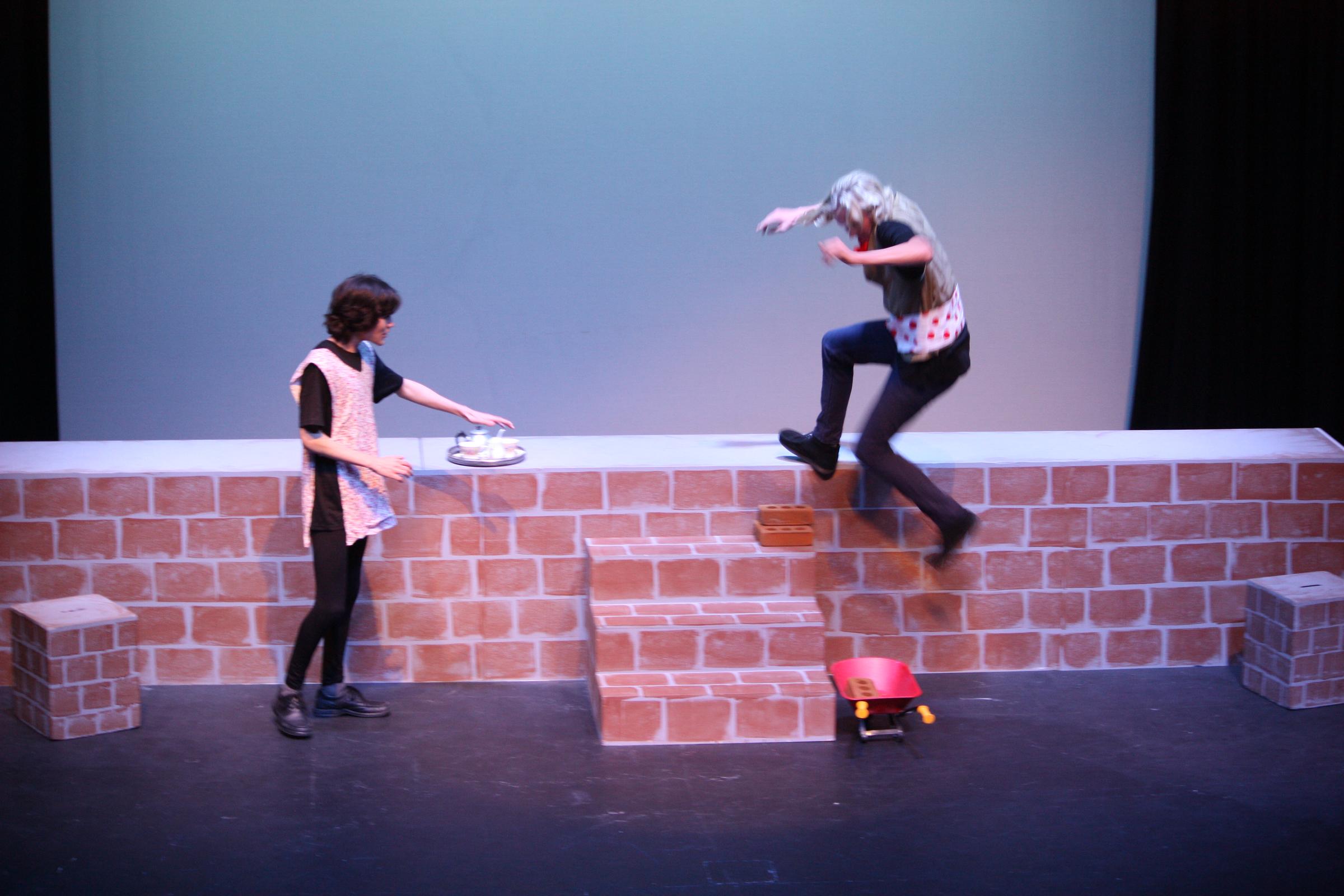
IBDP Theatre
Image: 'The Humpty Files', 2021
| 🎓 Level | HL & SL |
|---|---|
| ⏱ Hours | 150 (SL) or 240 (HL) |
| 📚 Prerequisite | nil |
| ℹ️ IB Course Information | Link (HL & SL) |
What will I learn?
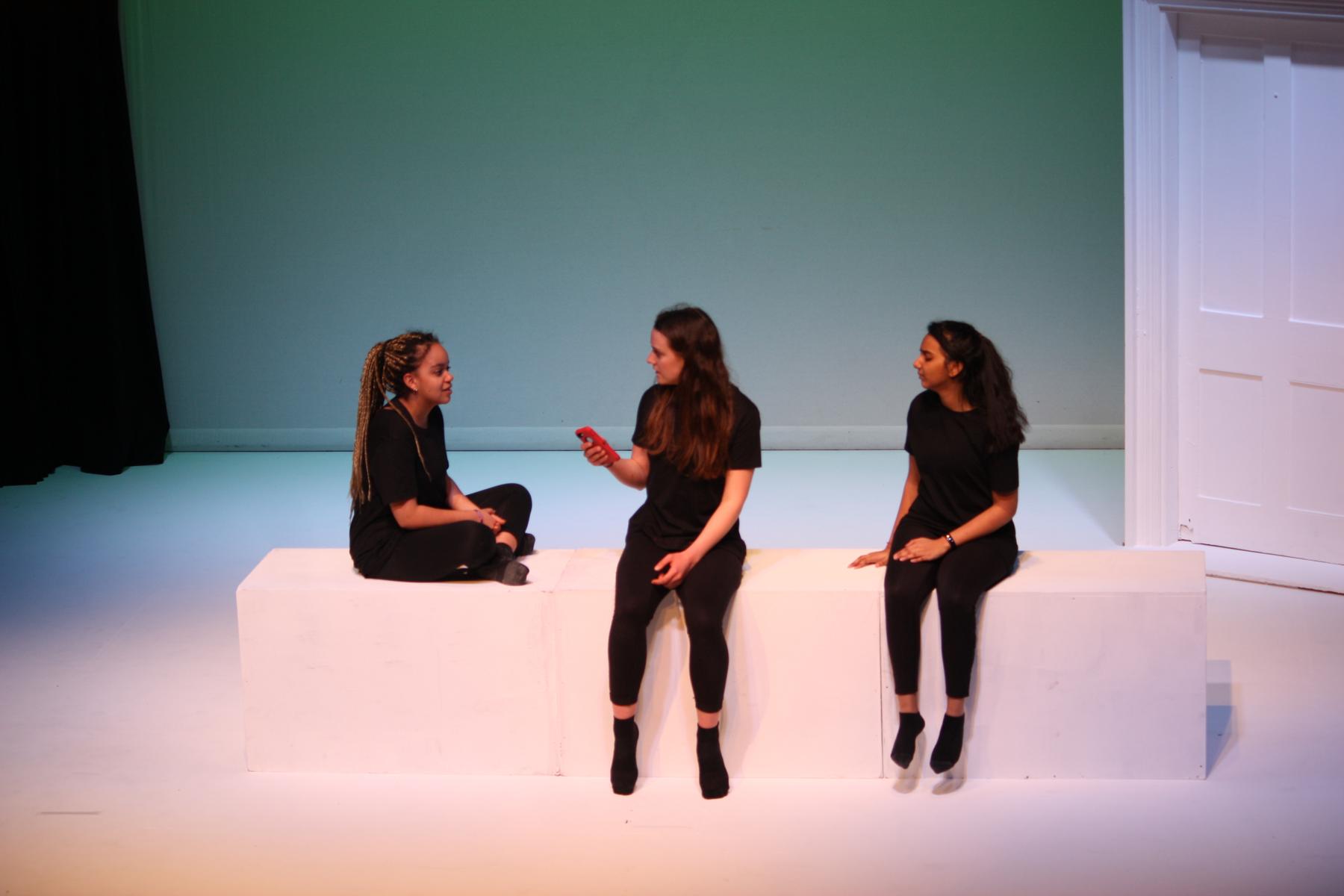

Theatre is a dynamic, collaborative and live art form. It is a practical subject that encourages discovery through practical inquiry, experimentation, risk taking and the presentation of ideas to others.
The IB Diploma Programme theatre course is a multifaceted theatre-making course. It gives students the opportunity to make theatre as creators, designers, directors and performers. It emphasises the importance of working both individually and as part of an ensemble. It offers the opportunity to engage actively in the creative process of inquiring, developing, presenting and evaluating. Students are encouraged to work as inquisitive and imaginative artists, transforming ideas into action and communicating these to an audience.
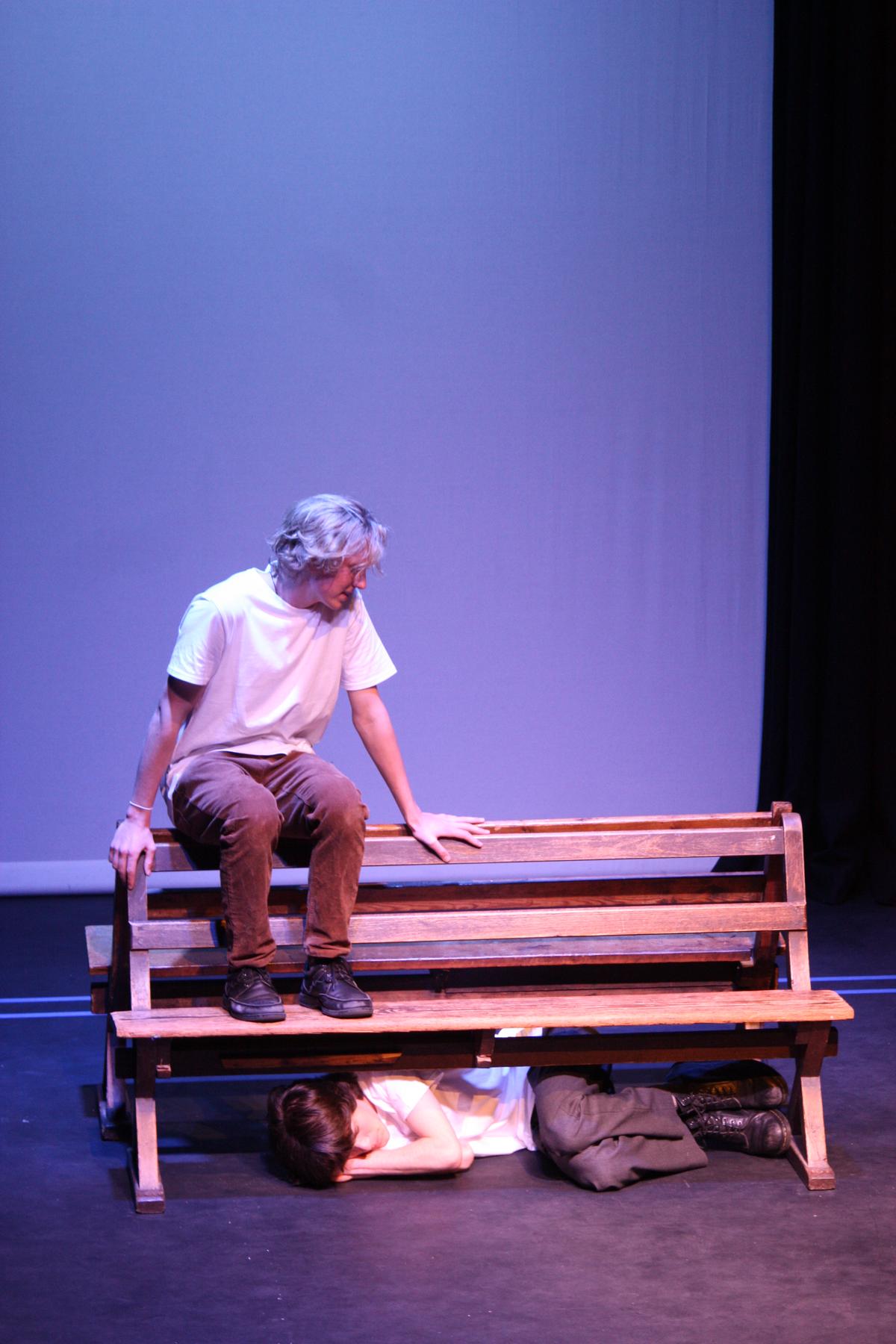

The basis of theatre is inquiry into the human condition; what makes us human, the actions we take and the stories we tell, how we interact and how we share our visions. Theatre is a form of expressive communication to others, and students are therefore required to think about the responsibilities of theatre-making, considering carefully what they wish to communicate and how to best present their ideas.
Theatre students learn to apply research and theory to inform and contextualise their work as they experience the course through practical and physical engagement. It enables students to discover and engage with different forms of theatre across time, place and culture and promotes international-mindedness. The syllabus clearly indicates a differential between SL and HL. It allows for greater breadth and depth in the teaching and learning at HL through an additional assessment task, which requires HL students to engage with theatre theorists and their theories.
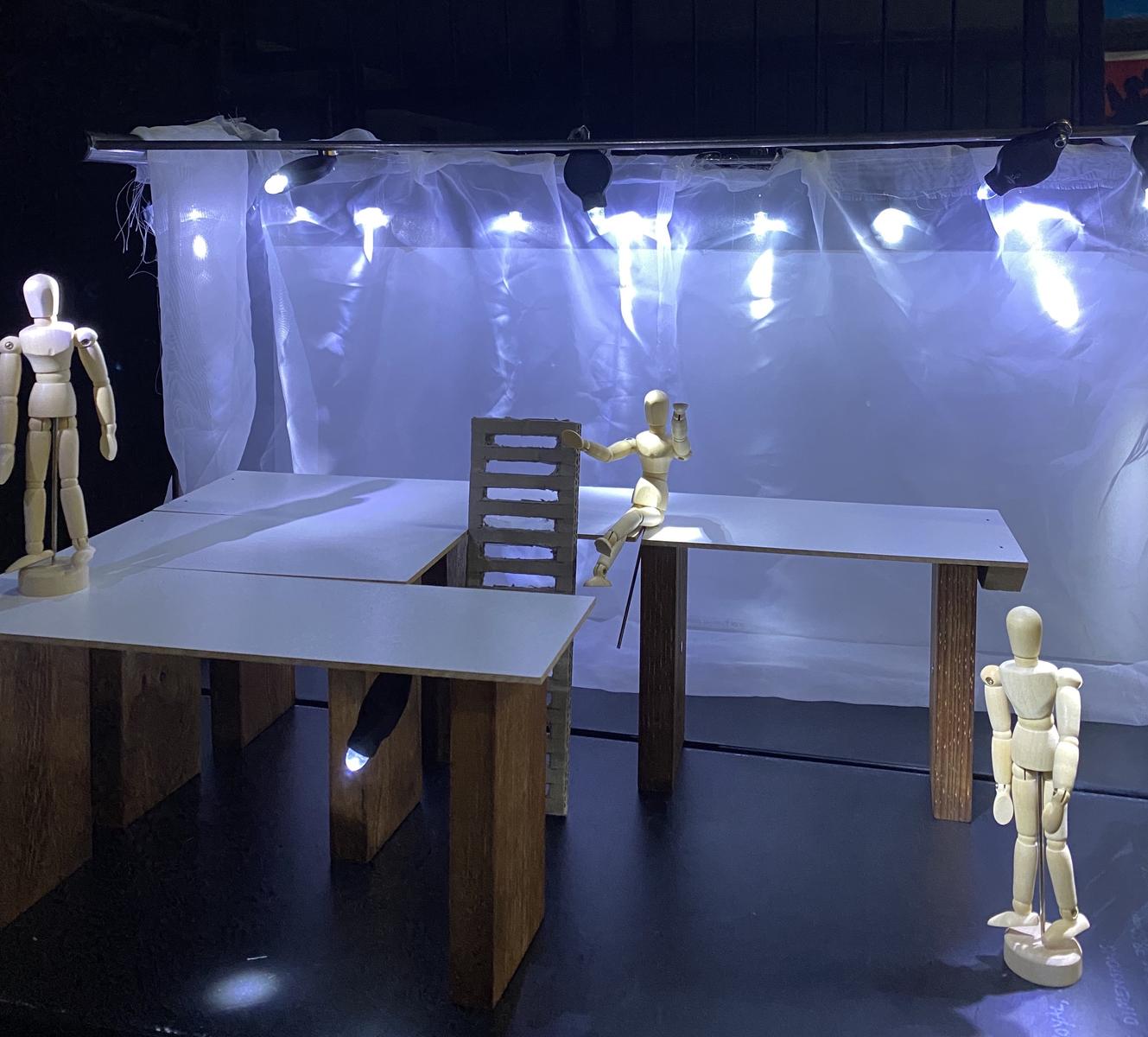

Through Inquiry, Action and Reflection students focus on the techniques and methods of making theatre, and present these discoveries in a variety of ways, through performance, presentations, proposals and written expression.
Assessment
The DP Theatre course uses assessment criteria to assess work produced by students. Students at both SL and HL are required to maintain a theatre journal and write critically, analytically and reflectively throughout the course. This is the student’s ongoing record of their learning and is key to the development of the student’s ability to record their inquiries, processes and outcomes, to evaluate, and to reflect; skills required in each assessment task.
| Component | Requirement | %HL | %SL |
|---|---|---|---|
| Production Proposal (IA) | Students formulate a vision for the design and theoretical staging of the entire play text for an audience. | 20 | 30 |
| Research Presentation (EA) | Students plan, deliver and video record an individual research presentation (15 minutes maximum) in which they provide evidence of their academic and practical exploration and learning of a world theatre tradition they have not previously studied. | 20 | 30 |
| Collaborative Project (EA) | Students at SL and HL collaboratively create and perform an original piece of theatre (lasting 7–10 minutes maximum) created from a starting point of their choice. The piece is presented to an audience as a fully-realised production. | 25 | 40 |
| Solo Theatre Piece (HL only) | Students at HL research a theatre theorist they have not previously studied, identify an aspect(s) of theory and create and present a solo theatre piece (lasting 4–7 minutes maximum) that demonstrates the practical application of this theory to a theatre piece for an audience. | 35 | - |
Why should I consider this course?


What Skills does this course provide?


Through the study of theatre, students strengthen their awareness of their own personal and cultural perspectives, developing an appreciation of the diversity of theatre practices, their processes and their modes of presentation. This enables students to discover and engage with different forms of theatre across time, place and culture and promotes international-mindedness. Participation in the DP Theatre course results in the development of both theatre and life skills; the building of confidence, imagination, creativity and a collaborative mindset.


What Pathway Options does this course provide?
The theatre course provides a relevant learning opportunity for a diverse range of students because it lays an appropriate foundation for further study in theatre, performing arts and other related subjects. In addition, by instilling discipline, and refining communication, creative and collaborative skills, it offers a valuable course of study for students who may wish to pursue a career or further education studies in areas unconnected to theatre.
